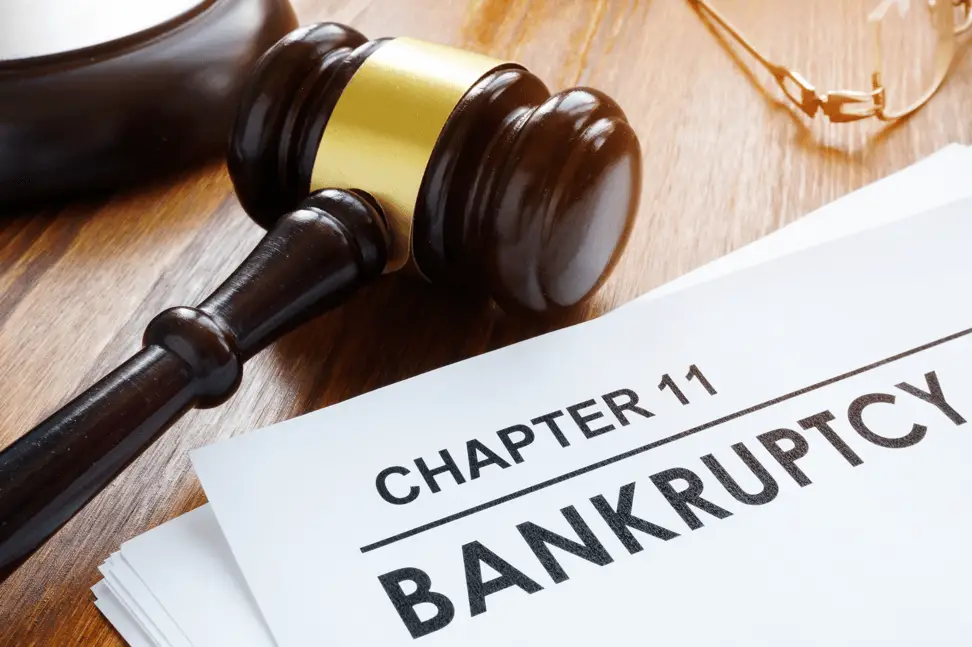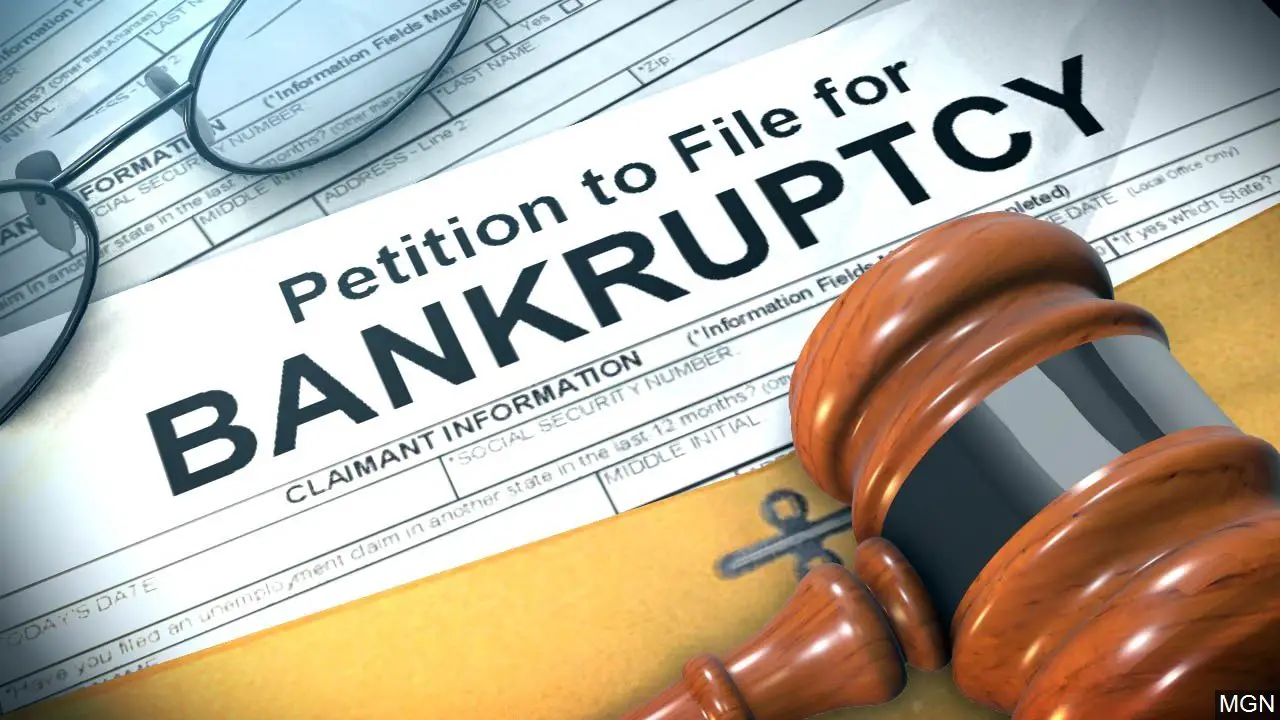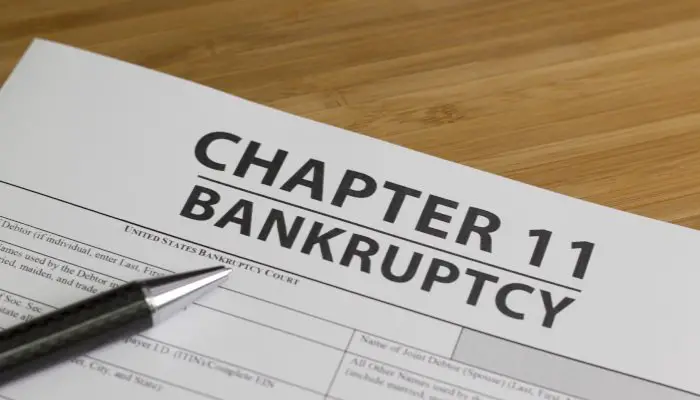Other Ways To Discharge Debt
Often creditors sell their unsecured debts to collection agencies, who then adopt aggressive tactics to collect on the debt, or as much of it as they can. There are ways to use the Fair Credit Reporting Act to get these unsecured debts voided, especially because collection agencies often lack the necessary documentation for legally enforcing debt obligations. This forum post has some good information on how to do that.
Benefits And Disadvantages Of Chapter 11 Bankruptcy
For all its challenges, Chapter 11 offers some benefits. Here are some of the most important:
- The business keeps operating under current ownership and management.
- As a debtor-in-possession, the business can borrow money on better terms.
- The business can get out from under burdensome leases and other contracts.
- The business may be able to sell previously encumbered assets to raise money.
- Ultimately, the business may be able to emerge as financially healthy.
Chapter 11s disadvantages include:
- Not shielding sole proprietors from creditors seeking repayment.
- Its expensive, thanks to the need for legal and other professional advice.
- Cases can take a long time.
- The business may not be able to sell assets, borrow or make other decisions without court approval.
- Chapter 11 may not work, leading to the business being forced to close its doors and liquidate.
Chapter 11 Bankruptcy For Individuals: Better Than Chapter 13
You may be aware that more and more businesses are starting to file for Chapter 11 bankruptcy. But you may not be aware that even individuals in some cases can also file for Chapter 11 bankruptcy. But what advantages or disadvantages are there for an individual to file for Chapter 11, as opposed to Chapter 13 bankruptcy?
How Much Debt?
For one thing, in Chapter 13, there is a limit to how much debt you can have. Most of us will not hit these ceilings, but it is possible. An individual can only have $38,317 in unsecured debts , and $1,149,525 in secured debts .
But these limits dont apply in Chapter 11. That means that for individuals who have very large amounts of debt, Chapter 11 may be the only avenue they have to discharge debt.
Income Requirements
Chapter 13 bankruptcy also requires that you have enough income to make payments under a repayment plan. But Chapter 11 has no such requirement. It is possible to have no income, so long as you have property or assets that you are willing to sell to pay back some of your debt. That option isnt available in Chapter 13 bankruptcy.
Management of Finances
In Chapter 11 bankruptcy, the debtor generally gets to manage their own affairs in the absence of any kind of fraud that would require stricter oversight. The debtor is assumed to be acting for the benefit of the creditors, and can manage their business or financial affairs in whatever way is best for those creditors.
Budgeting
Resource:
Also Check: What Is A Bankruptcy Restrictions Order
Time To Deal With Non
Its important to understand that not every debt can be discharged through bankruptcy. Things such as child support, alimony, payroll taxes, and others cannot be purged. Even if a business closes, those payroll taxes could follow you as personal debt. One of the extraordinary reasons Chapter 11 proves so helpful is that you can tap the brakes. Chapter 11 petitions can prevent the Internal Revenue Service from aggressively leveling ongoing penalties and fees that keep accumulating. In fact, a determined Chapter 11 bankruptcy lawyer may be able to broker a settlement deal with the IRS that allows you to reduce the amount owed and move on with your life.
Filer Retains Control Of The Business

Unlike other bankruptcy chapters, a bankruptcy trustee isn’t in charge of the business and other bankruptcy property. The filer continues to run the everyday functions as a “debtor in possession” during the Chapter 11 bankruptcy.
However, small business bankruptcies filed under Chapter 11, Subchapter V are subjected to more oversight.
Read Also: Can You File Bankruptcy On A Judgement Against You
How Chapter 7 Bankruptcy Works
Chapter 7 is the type of bankruptcy that most people imagine when they think of bankruptcy: Through a court-appointed trustee, Chapter 7 bankrupts usually individuals rarely businesses sell their nonexempt assets to clear as much of their unsecured debt as possible. The rest, with exceptions such as taxes and student loans, is wiped out.
This mutual destruction is why Chapter 7 bankruptcy also is commonly known as liquidation bankruptcy. However, a 2018 survey by the American Bankruptcy Institute revealed that 93% of applicants who properly filed exemption paperwork were able to protect all of their assets. All. Of. Their. Assets. Thats #AllOfTheirAssets.
Whats the trick? Debtors must qualify for Chapter 7 by surviving a bankruptcy means test. Is your monthly income lower than the median for a household of your size in your state? Youre in. File exemptions properly fingers crossed and become one of the 93-percenters.
Who doesnt qualify? Applicants with above-median incomes who, after paying allowed expenses, have money left to address at least a portion of their unsecured debts.
Chapter 11 Bankruptcy Explained
It has no limits on the amount of debt, as Chapter 13 does.
It is the usual choice for large businesses seeking to restructure their debt.
Individuals usually file Chapter 7 or Chapter 13 rather than Chapter 11, which are simpler and less expensive.
Dont confuse Title 11, the section of the U.S. Code that covers all kinds of bankruptcy, with Chapter 11, a particular kind of bankruptcy found within Title 11.
Don’t Miss: Does Filing Bankruptcy Eliminate Tax Debt
How Does Chapter 11 Differ From Other Forms Of Bankruptcy
There are three types of bankruptcies that well detail below. Briefly, heres how each works:
Chapter 11: Called a reorganization bankruptcy, it allows businesses to keep operating while restructuring their finances. Creditors are temporarily prohibited from taking action against the company.
Chapter 7: Assets are liquidated and creditors get little or nothing. It gives creditors incentive to instead approve Chapter 11 bankruptcy.
Chapter 13: Sometimes called the Wage Earners Bankruptcy, this form of bankruptcy allows those with enough income to replay all or part of their debts as an alternative to liquidation. It allows filers to keep their home as long as the mortgage is paid under a settlement plan.
Personal Bankruptcy Options Chapter 7
As far as personal bankruptcy options go, Chapter 7 bankruptcy is the most common type. This is a liquidation bankruptcy where a Chapter 7 trustee is assigned to your personal bankruptcy case. This trustee has the power to sell any of your assets that are not protected by bankruptcy exemptions. In most Chapter 7 bankruptcy cases, people are able to discharge the majority of their general unsecured debts such as credit cards, loans, medical bills, and other debts which are not secured against property, and are not certain types of priority unsecured debts.
Individual and joint debtors may qualify for a Chapter 7 bankruptcy case if they pass the means test. This is a calculation to determine if your income is more than the average income of a household of your same size in your county. If you do pass the means test, then you may choose Chapter 7 over other kinds of bankruptcy. However, if you have exposed equity in your assets, or are concerned that the Chapter 7 trustee assigned to your case will believe that you have exposed equity in your assets, then you may want to consider a reorganization bankruptcy under Chapter 13 or Chapter 11.
Read Also: How Often Can You File Chapter 7 Bankruptcy In Michigan
Appointment Or Election Of A Case Trustee
Although the appointment of a case trustee is a rarity in a chapter 11 case, a party in interest or the U.S. trustee can request the appointment of a case trustee or examiner at any time prior to confirmation in a chapter 11 case. The court, on motion by a party in interest or the U.S. trustee and after notice and hearing, shall order the appointment of a case trustee for cause, including fraud, dishonesty, incompetence, or gross mismanagement, or if such an appointment is in the interest of creditors, any equity security holders, and other interests of the estate. 11 U.S.C. § 1104. Moreover, the U.S. trustee is required to move for appointment of a trustee if there are reasonable grounds to believe that any of the parties in control of the debtor “participated in actual fraud, dishonesty or criminal conduct in the management of the debtor or the debtor’s financial reporting.” 11 U.S.C. § 1104. The trustee is appointed by the U.S. trustee, after consultation with parties in interest and subject to the court’s approval. Fed. R. Bankr. P. 2007.1. Alternatively, a trustee in a case may be elected if a party in interest requests the election of a trustee within 30 days after the court orders the appointment of a trustee. In that instance, the U.S. trustee convenes a meeting of creditors for the purpose of electing a person to serve as trustee in the case. 11 U.S.C. § 1104.
As discussed above, a trustee is appointed in each subchapter V case. 11 U.S.C. § 1183.
Federal Tax Refunds During Bankruptcy
You can receive tax refunds while in bankruptcy. However, refunds may be subject to delay or used to pay down your tax debts. If you believe your refund has been delayed or offset against your tax debts you can check on its status by going to our Wheres My Refund tool or by contacting the IRS Centralized Insolvency Operations Unit at 1-800-973-0424. The unit is available Monday through Friday from 7:00 a.m. to 10:00 p.m. eastern time.
Read Also: How To Find Out If A Company Has Filed Bankruptcy
Plan Voting And Confirmation
The court first approves or conditionally approves a disclosure statement, which lists the assets, liabilities, and business affairs of the debtor. Creditors can then discuss the proposed payment plan internally before voting on the plan. Each eligible creditor is mailed a ballot, a copy of the disclosure statement, and a copy or summary of the proposed plan. The court sets a deadline for voting on the plan, by which all creditors ballots must be filed with the court.
A creditor is eligible to vote on a Chapter 11 plan if their claim is allowed by the court. Except for certain priority claims, a court puts each claim into a class as part of a Chapter 11 bankruptcy plan. To be eligible to vote on a plan, a class of claims must:
- Be impaired by the plan, or not paid in full.
- Receive something under the plan.
Classes of claims that are paid in full under the plan, or unimpaired, are considered to accept the plan. Classes of claims that do not receive any funds are considered to reject the plan. Creditors in either of these classes do not have the ability to vote on the Chapter 11 bankruptcy plan. All other classes of creditors are eligible to vote on the plan.
The court can confirm a plan under the regular method of confirmation when:
Who Is Eligible For Chapter 11 Bankruptcy

Almost any person or business is allowed to file for Chapter 11 bankruptcy. Because there are no limitations or requirements about the amount of debt or income for the entity doing the filing, Chapter 11 is available to most individuals, corporations, partnerships, joint ventures and limited liability companies.
Basically, if you need to reorganize your business or personal finances, you can file for Chapter 11 bankruptcy.
So who cant? Government agencies, insurance companies, banks, estates, nonbusiness trusts, stockbrokers or commodity brokers, Small Business Administration-licensed investment companies none of them can file for Chapter 11. Nor can an individual who has had another bankruptcy case dismissed on certain grounds in the previous six months.
If you can manage the expense of the filing and legal fees and arent among those exceptions, Chapter 11 is an available remedy.
Don’t Miss: What Does Bankruptcy Mean For Boy Scouts
Disclosure Statement And Plan Of Reorganization
The debtor has a 120-day period during which it has an exclusive right to file a plan.
This exclusivity period may be extended or reduced by the court. After the exclusivity period has expired, a creditor or the case trustee may file a competing plan.
A disclosure statement and a plan of reorganization must be filed with the court before the debtor may solicit confirmation of a plan of reorganization.
The disclosure statement must contain information concerning the assets, liabilities, and business affairs of the debtor sufficient to enable a creditor to make an informed judgment regarding the plan.
After the disclosure statement is approved by the court and the ballots are collected and tallied, the court will conduct a confirmation hearing to determine whether to confirm the plan.
Under section 1126 of the Bankruptcy Code, an entire class of claims is deemed to accept a plan if the plan is accepted by creditors that hold at least two-thirds in amount and more than one-half in number of the allowed claims in the class.
If there are impaired classes of claims, the court cannot confirm a plan unless it has been accepted by at least one class of non-insiders who hold impaired claims .
Holders of unimpaired claims are deemed to have accepted the plan.
Whats Next For Litigation
The litigation landscape has been profoundly impacted by the long-term consequences of Covid-19, from what is defined as unforeseeable in breach of contract claims to an increase in ADA-related litigation related to RTO mandates.
Thats why Bloomberg analysts compiled our annual outlook on the legal industry, outlining the different ways COVID has affected the legal world, and what it means for you. In this special report, our analysts evaluate the trends key to 2022 planning, including:
- Complex Covid-19 related labor and employment issues
- Emerging antitrust case trends
Recommended Reading: How Long Does Bankruptcy Stay On Your Record
Reasons To File For Chapter 13
The main reason for an individual to file for Chapter 13 bankruptcy is to prevent the liquidation of all their assets. In particular, it is frequently used to avoid the forced sale of an individuals home, which Chapter 7 cant do. Chapter 11 may also prevent a forced home sale, but is usually too expensive and complicated a procedure for most people. Of course, not everyone has the choice to use Chapter 13. Having a stable income is a crucial qualifier, and there is that debt limit of $2.7 million as well.
Chapter 11 Vs Chapter 7 Effects On Credit
Both Chapter 11 and Chapter 7 bankruptcies remain on for 10 years after the filing date. In contrast, Chapter 13 bankruptcy lasts on a credit report for only seven years.
The effect of having a bankruptcy on a credit report can be very negative. It usually prevents individuals from taking out new loans or getting approved for credit cards. It also makes buying a car or home almost impossible. While this can make sense early on in a bankruptcy, many years down the road, long after debts have been forgiven or repaid, it can continue to haunt the filer.
Don’t Miss: Can You File Bankruptcy Twice In 7 Years
Does Chapter 11 Bankruptcy Make Sense For You Or Your Business
If you or your business is facing financial difficulty, set up a consultation with a local bankruptcy attorney. Be sure the attorney has experience with chapter 7, chapter 11 and chapter 13 bankruptcy, so he or she can make a solid recommendation for your case. Bankruptcy isnt always the right option, but it could help you or your business get the debt relief you need.
Chapter 11 Bankruptcy Can Restructure A Distressed Business
Chapter 11 bankruptcy can restructure a distressed business.
Under Chapter 11 bankruptcy, a business may continue operations under court protection while a plan of reorganization is proposed to creditors.
Chapter 11 bankruptcy can also be filed to liquidate the assets of a business, in whole or in part, usually under the control of existing management.
Don’t Miss: How To File Bankruptcy On A Student Loan
Benefits Of Chapter 11 Bankruptcy
Chapter 11 bankruptcy generally allows a business owner to maintain ownership of their business. This is the No.1 advantage of chapter 11 bankruptcy compared with chapter 7 bankruptcy, which requires a business owner to liquidate the company or sell it entirely to pay off debts.
Individuals facing bankruptcy may see several advantages of declaring chapter 11 bankruptcy as opposed to chapter 7 or chapter 13 bankruptcy.
The Us Trustee Or Bankruptcy Administrator

The U.S. trustee plays a major role in monitoring the progress of a chapter 11 case and supervising its administration. The U.S. trustee is responsible for monitoring the debtor in possession’s operation of the business and the submission of operating reports and fees. Additionally, the U.S. trustee monitors applications for compensation and reimbursement by professionals, plans and disclosure statements filed with the court, and creditors’ committees. The U.S. trustee conducts a meeting of the creditors, often referred to as the “section 341 meeting,” in a chapter 11 case. 11 U.S.C. § 341. The U.S. trustee and creditors may question the debtor under oath at the section 341 meeting concerning the debtor’s acts, conduct, property, and the administration of the case.
In North Carolina and Alabama, bankruptcy administrators perform similar functions that U.S. trustees perform in the remaining forty-eight states. The bankruptcy administrator program is administered by the Administrative Office of the United States Courts, while the U.S. trustee program is administered by the Department of Justice. For purposes of this publication, references to U.S. trustees are also applicable to bankruptcy administrators.
Don’t Miss: How Do You File For Bankruptcy In Massachusetts